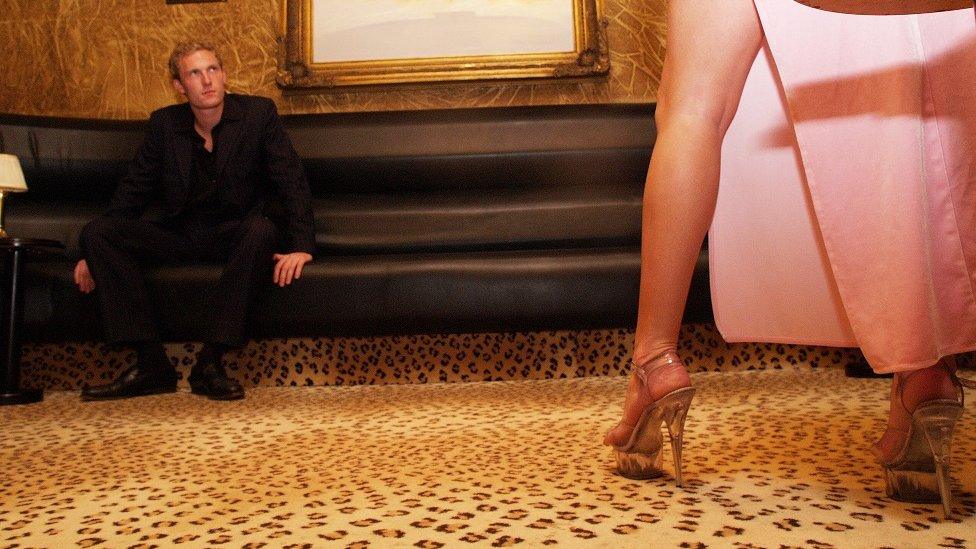Ministers face calls to ban strip clubs
- Published

Lap-dancing clubs should be banned in Scotland, women's groups have told the Scottish government.
Urging ministers to follow the example of Iceland, where strip clubs are illegal, they claim the venues "normalise... misogynistic attitudes".
But in response to a consultation on new licensing laws for sexual entertainment venues, industry professionals have hit back.
One described its performers as "strong, independent, talented women".
Brightcrew, the company behind Platinum Lace in Glasgow, said its employees "choose to work in a sexual environment".
Ministers have proposed a licensing scheme which would give local authorities the power to set the number of licences at zero.
Responses published by the Scottish government, external suggest Violence Against Women groups believe the legislation does not go far enough.
The Women's Support Project, a Glasgow-based charity, said it was "disappointing" that the issue had been devolved to local level.
'Stronger position'
It said: "Other governments have taken a strong lead and set the number of sexual entertainment venues to nil across the country.
"Iceland passed legislation which makes it illegal for any business to profit from the nudity of its employees. This was based on a desire to promote gender equality and change attitudes towards women."
It was echoed by the Dundee Violence Against Women Partnership, which said it considered lap dancing, stripping and pole dancing to be "forms of commercial sexual exploitation and, therefore, a form of violence against women".
The organisation went on to urge the government to adopt a "stronger position" by setting the number of sexual entertainment venues at zero or supporting local authorities to do the same.
Glasgow Violence Against Women Partnership (VAWP) warned that commercial sexual exploitation contributed to gender inequality and normalised misogynistic attitudes.
It added its voice to calls to set the number of venues at nil, adding "We would strongly contest that violence against women is not prevented, eradicated or reduced by the licensing of sexual entertainment venues.
'Discreet licensing'
"Like other VAWPs we would urge the government to adopt a significantly stronger position on this issue."
However professionals involved in the industry raised concerns that new legislation could lead to their unemployment.
One woman who said she chose to be a lap-dancer in Glasgow said she would be unable to travel to England to find work.
"This leaves me with the unenviable choice of being unemployed or when lap dancing inevitably goes underground I will have to work in an unsafe environment outside of regulation," she said.
Brightcrew, which operates Platinum Lace in Glasgow, said it was concerned by ministers' attitude to the sexual entertainment industry.
A government strategy Equally Safe, external considers commercial sexual exploitation such as lap-dancing as violence against women.
Brightcrew said that was "unfair and untrue".
It said it "accepts and embraces" the introduction of a "discreet licensing regime" and likened it to the licensing of gambling or the consumption of alcohol.